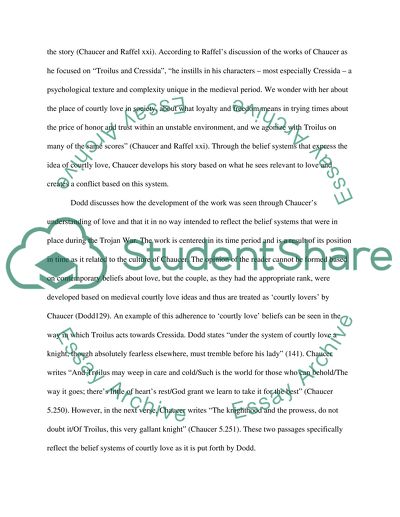Cite this document
(“A Comparison of Chaucer and Shakespeare for Troilus and Cressida Essay”, n.d.)
Retrieved from https://studentshare.org/literature/1440423-a-comparison-of-chaucer-and-shakespeare-for-troilus-and-cressida
Retrieved from https://studentshare.org/literature/1440423-a-comparison-of-chaucer-and-shakespeare-for-troilus-and-cressida
(A Comparison of Chaucer and Shakespeare for Troilus and Cressida Essay)
https://studentshare.org/literature/1440423-a-comparison-of-chaucer-and-shakespeare-for-troilus-and-cressida.
https://studentshare.org/literature/1440423-a-comparison-of-chaucer-and-shakespeare-for-troilus-and-cressida.
“A Comparison of Chaucer and Shakespeare for Troilus and Cressida Essay”, n.d. https://studentshare.org/literature/1440423-a-comparison-of-chaucer-and-shakespeare-for-troilus-and-cressida.


